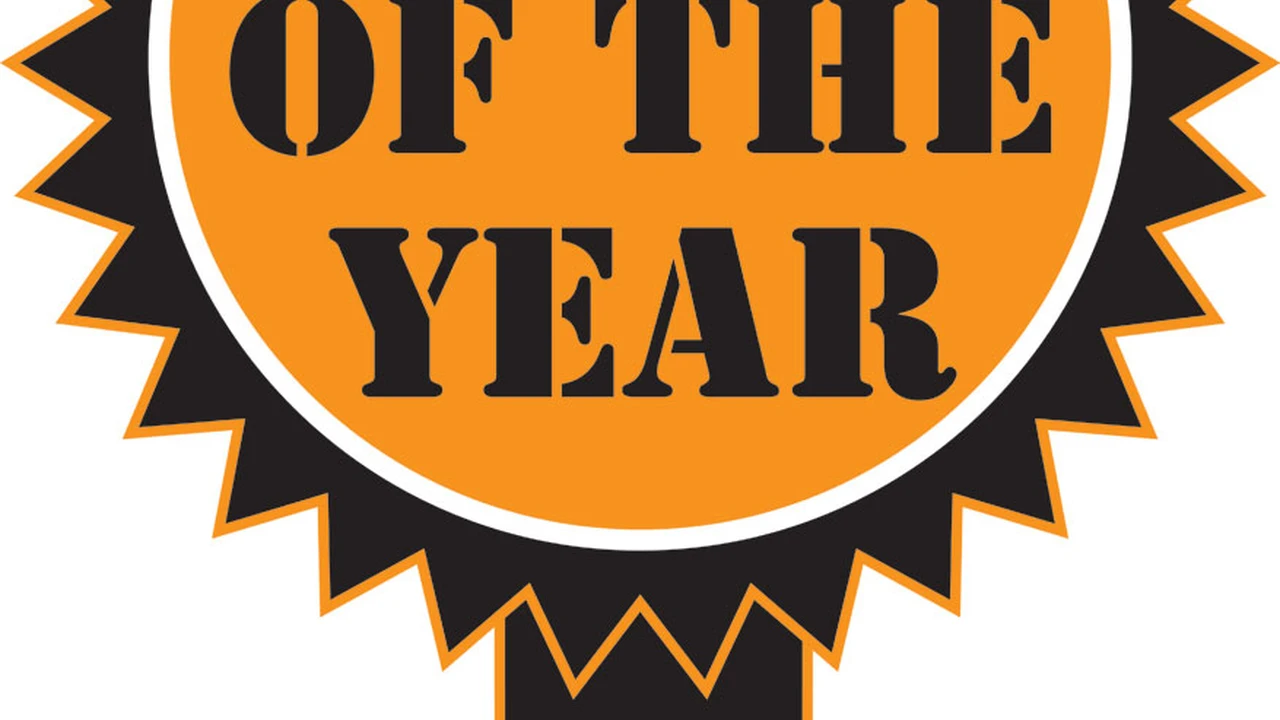Building a Personal Brand Through Online Learning and Networking
Learn how to build a strong personal brand through online learning and networking. Enhance your professional presence.

Learn how to build a strong personal brand through online learning and networking. Enhance your professional presence.
Building a Personal Brand Through Online Learning and Networking
Hey there! Ever wondered how some people just seem to stand out in their careers, always getting those amazing opportunities? A lot of it boils down to having a strong personal brand. Think of it as your unique professional identity – what makes you, you, in the eyes of your industry, colleagues, and potential employers. In today's digital world, building this brand is more crucial than ever, and guess what? Online learning and strategic networking are your secret weapons. Let's dive deep into how you can leverage these tools to craft a personal brand that truly shines.
Understanding Your Personal Brand What Makes You Unique
Before you start building, you need to know what you're building. Your personal brand isn't just about your resume; it's about your values, your expertise, your personality, and how you present all of that to the world. It's the sum total of how people perceive you professionally. Ask yourself: What are my core strengths? What am I passionate about? What problems do I love to solve? What kind of impact do I want to make? Answering these questions will help you define your unique selling proposition (USP). For example, are you the go-to person for complex data analysis, a creative genius in digital marketing, or a compassionate leader in team management? Pinpointing this will be your North Star.
Leveraging Online Learning for Skill Development and Expertise Building
Online learning platforms are goldmines for building expertise, which is a cornerstone of any strong personal brand. They allow you to acquire new skills, deepen existing ones, and even pivot your career direction. But it's not just about collecting certificates; it's about strategically choosing courses that align with your brand vision and then applying that knowledge.
Top Online Learning Platforms for Brand Building
Let's talk about some specific platforms that can help you on this journey:
Coursera
What it is: Coursera partners with universities and companies to offer a vast array of courses, specializations, and even full degrees. You can find everything from data science to creative writing.
Use Case for Brand Building: If you're looking to gain recognized credentials from top institutions, Coursera is fantastic. Completing a specialization from a reputable university like Yale or Google can significantly boost your credibility and signal expertise in a specific area. For instance, the 'Google Project Management Professional Certificate' or 'IBM Data Science Professional Certificate' are highly regarded and can directly enhance your brand as a skilled professional in those fields.
Pricing: Many individual courses are free to audit (without a certificate). Specializations and professional certificates typically range from $39 to $79 per month, or you can pay a one-time fee for some programs. Coursera Plus, their subscription model, offers unlimited access to most courses and specializations for $399 per year.
edX
What it is: Similar to Coursera, edX offers high-quality courses from universities like Harvard, MIT, and Berkeley. It also features MicroBachelors and MicroMasters programs, which are pathways to full degrees.
Use Case for Brand Building: edX is excellent for deep dives into academic subjects and for those who want to showcase a strong theoretical foundation. If your brand is about being a thought leader or an expert with a strong academic background, edX's university-backed courses and programs are perfect. For example, a 'Data Science MicroMasters Program' from MIT can significantly elevate your brand in the tech space.
Pricing: Many courses are free to audit. Verified certificates usually cost between $50 and $300 per course. MicroBachelors and MicroMasters programs can range from $500 to $1,500 or more.
Udemy
What it is: Udemy is an open marketplace where instructors can create and sell courses. This means a huge variety of topics, often very practical and skill-focused.
Use Case for Brand Building: Udemy is fantastic for acquiring very specific, practical skills quickly. If you want to brand yourself as someone who can do things, Udemy has courses on almost every software, tool, or technique imaginable. For example, if you want to be known as a HubSpot expert, you can find multiple in-depth courses there. It's also great for exploring niche interests that might become part of your unique brand.
Pricing: Courses are priced individually, often ranging from $10 to $200, but Udemy frequently runs sales where courses are heavily discounted (often to $10-$15).
LinkedIn Learning
What it is: Formerly Lynda.com, LinkedIn Learning offers video courses taught by industry experts across business, creative, and technology categories. It's integrated with your LinkedIn profile.
Use Case for Brand Building: The direct integration with LinkedIn is a huge plus for personal branding. Completing courses here allows you to easily display your new skills and certificates on your professional profile, making them visible to your network and recruiters. It's particularly strong for professional development, soft skills, and software proficiency. If you want to brand yourself as a well-rounded professional with strong communication skills and software expertise, LinkedIn Learning is a great choice.
Pricing: It's a subscription service, typically around $29.99 per month or $19.99 per month if billed annually. Many LinkedIn Premium subscriptions include LinkedIn Learning access.
Skillshare
What it is: Skillshare focuses heavily on creative skills, offering thousands of classes in areas like illustration, design, photography, video, freelancing, and more.
Use Case for Brand Building: If your personal brand leans towards creativity, design, or entrepreneurial endeavors, Skillshare is your platform. It's project-based, encouraging you to create and share your work, which is excellent for building a portfolio – a key component of a creative brand. For example, if you want to brand yourself as a freelance graphic designer, taking multiple classes and completing projects on Skillshare can help you build a strong portfolio to showcase.
Pricing: Subscription-based, around $14 per month or $99 per year. They often offer free trial periods.
Choosing the Right Courses for Your Brand
When selecting courses, think strategically. Don't just pick what's popular. Choose courses that:
- Fill a knowledge gap: What skills are you missing that would make your brand stronger?
- Deepen existing expertise: Become the absolute best in your chosen niche.
- Align with your career goals: Will this course help you move towards your desired professional identity?
- Offer practical application: Look for courses with projects or assignments you can add to your portfolio.
Remember, the goal isn't just to learn, but to be able to articulate what you've learned and how it contributes to your unique professional identity.
Strategic Networking Building Connections That Matter
Online learning gives you the skills; networking gives you the visibility and connections to amplify your personal brand. It's not just about collecting business cards (or LinkedIn connections); it's about building genuine relationships.
Online Networking Platforms and Strategies
LinkedIn The Professional Powerhouse
What it is: The world's largest professional networking site.
Use Case for Brand Building: This is non-negotiable. Your LinkedIn profile is your online professional brand hub. Optimize your profile with a professional headshot, a compelling headline, and a summary that clearly articulates your expertise and brand message. Share your course certificates, post insightful articles related to your field, and engage in relevant discussions. Connect with people in your industry, alumni, and thought leaders. Don't just connect; send personalized messages explaining why you want to connect.
Pricing: Free for basic use. Premium subscriptions (starting around $29.99/month) offer advanced features like InMail, who's viewed your profile, and LinkedIn Learning access.
Industry-Specific Online Communities and Forums
What it is: Websites, forums, or Slack/Discord groups dedicated to specific industries or skill sets (e.g., Stack Overflow for developers, Behance for designers, specific subreddits, or professional association forums).
Use Case for Brand Building: These are fantastic for demonstrating your expertise and helping others. Actively participate by answering questions, sharing insights, and offering constructive feedback. This positions you as a knowledgeable and helpful member of your community, which is a huge part of a positive personal brand. For example, if you're a UX designer, being active in a UX design Slack channel and offering advice can build your reputation.
Pricing: Most are free to join and participate.
Virtual Events and Webinars
What it is: Online conferences, workshops, and webinars hosted by industry leaders, companies, or educational institutions.
Use Case for Brand Building: Attending these events keeps you updated on industry trends (showing you're current and forward-thinking) and often provides opportunities to network. Use the chat functions to ask thoughtful questions, connect with speakers and other attendees, and follow up on LinkedIn. If you're brave enough, even consider presenting at one to truly establish yourself as an expert.
Pricing: Varies widely. Many are free, some can cost hundreds or thousands of dollars for premium conferences.
Social Media (Twitter, Instagram, TikTok) for Niche Brands
What it is: While often seen as personal, these platforms can be powerful for specific types of personal brands, especially in creative fields or for thought leadership.
Use Case for Brand Building: If your brand is visual (e.g., graphic designer, photographer), Instagram or TikTok can be a portfolio. If you're a thought leader, Twitter can be great for sharing insights and engaging in industry conversations. The key is to be strategic and consistent. Share your work, your learning journey, and your unique perspective. For example, a data scientist might share interesting data visualizations on Twitter with insightful commentary.
Pricing: Free.
Networking Best Practices for Brand Enhancement
- Be Authentic: People connect with real people. Let your personality shine through.
- Provide Value: Don't just ask for things. Offer help, share resources, and celebrate others' successes.
- Follow Up Thoughtfully: A quick, personalized message after a connection or event goes a long way.
- Be Consistent: Building a network and a brand takes time and consistent effort.
- Engage, Don't Just Consume: Comment on posts, ask questions, and start conversations.
Showcasing Your Brand The Digital Portfolio and Beyond
Once you've gained skills and made connections, you need to showcase your brand effectively. This is where your digital presence comes into play.
Building Your Digital Portfolio
A digital portfolio is a curated collection of your best work, projects, and achievements. It's a tangible representation of your skills and expertise.
Portfolio Platforms
GitHub: Essential for developers. Showcase your code, projects, and contributions to open source. It's a living resume for tech professionals.
Behance/Dribbble: Perfect for designers, illustrators, and other visual creatives. Upload your design projects, case studies, and mockups.
Personal Website/Blog: The ultimate control. You can host your portfolio, write articles demonstrating your thought leadership, and share your unique perspective. Platforms like WordPress, Squarespace, or Wix make it easy to create a professional-looking site without coding.
Pricing: GitHub is free for public repositories. Behance/Dribbble have free tiers with premium options. Personal websites can range from free (with limited features) to $10-$30/month for hosting and domain names.
Content Creation as a Brand Amplifier
Creating content is one of the most powerful ways to establish yourself as an expert and thought leader. This could be:
- Blogging: Share your insights, tutorials, and opinions on industry trends.
- Video Tutorials: If you're good on camera, teach others a skill you've mastered.
- Podcasting: Interview industry experts or discuss topics relevant to your niche.
- Social Media Posts: Share quick tips, industry news, and your take on current events.
The key is to consistently provide value to your audience. This not only showcases your expertise but also attracts like-minded individuals and opportunities.
Maintaining and Evolving Your Personal Brand
Your personal brand isn't a static entity; it evolves as you grow and your career progresses. Regularly review your brand message, update your skills through continuous online learning, and nurture your network. Stay curious, stay engaged, and keep learning. The digital landscape is always changing, and so should your brand, adapting to new technologies and opportunities.
By strategically combining online learning to build expertise and active networking to gain visibility, you're not just building a resume; you're crafting a powerful, authentic personal brand that will open doors and create opportunities throughout your career. So, go forth, learn, connect, and shine!
:max_bytes(150000):strip_icc()/277019-baked-pork-chops-with-cream-of-mushroom-soup-DDMFS-beauty-4x3-BG-7505-5762b731cf30447d9cbbbbbf387beafa.jpg)






